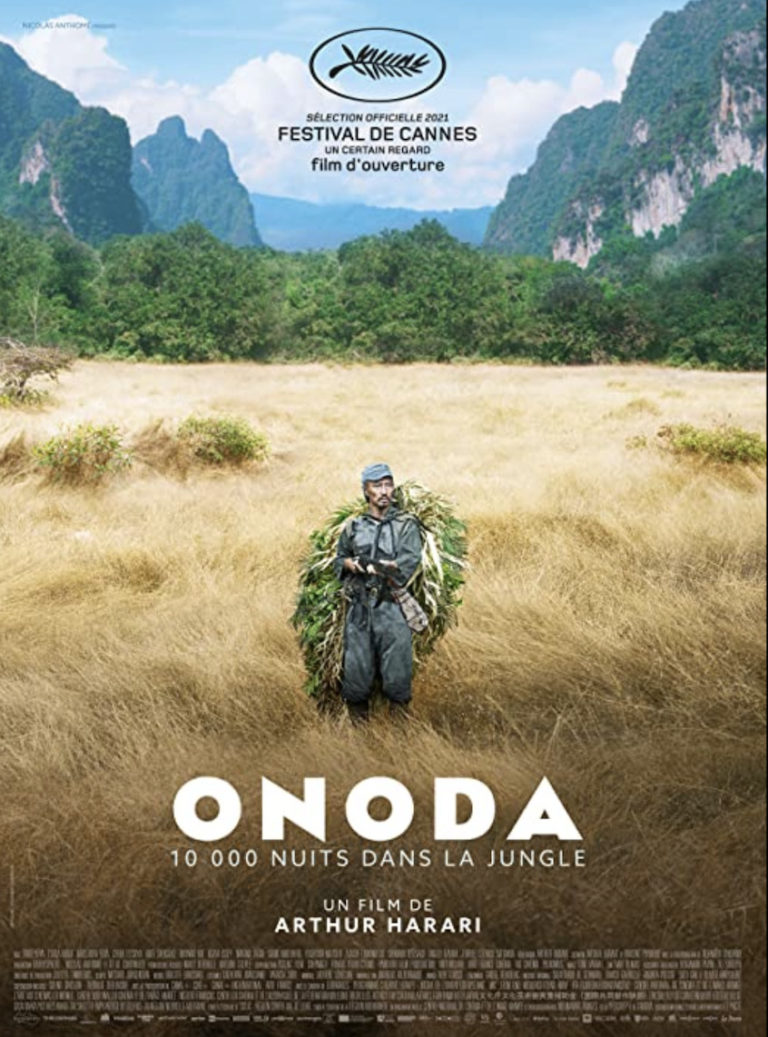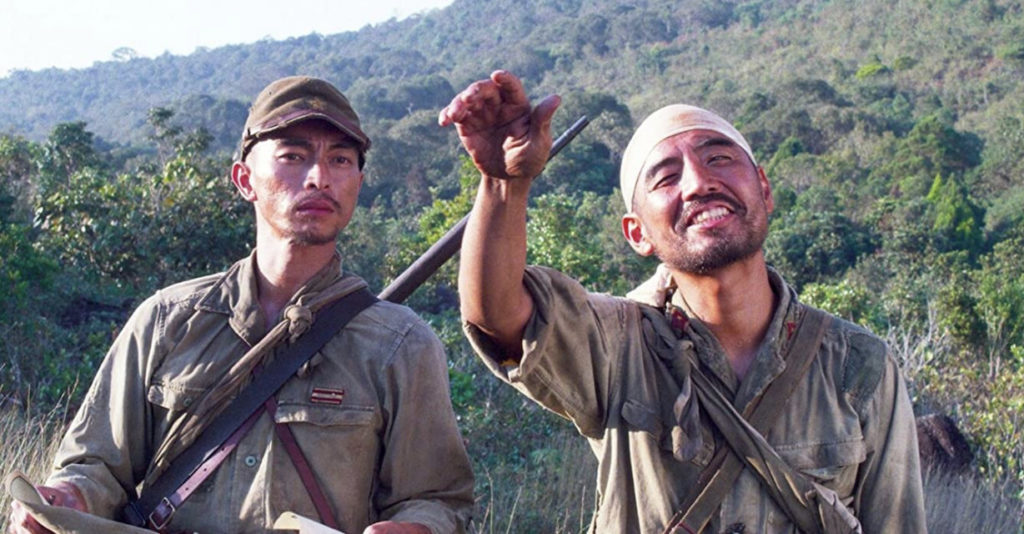
Exclusive Interview with Director Arthur Harari
Q : How did you find out about the story of Hiroo Onoda, and how did that lead to making this film?
(A.H) : My father told me about the story, because I wanted to find a subject for an adventure film. It fascinated me instantly.
Q : There’s some documentaries and books about them, can you describe the research process?
(A.H) : I mostly read the French documentary book “Onoda 30 ans seul en guerre” by Bernard Cendron and Gerard Chenu (1974), and worked with Bernard Cendron who helped with archives and memories of his encounters with Onoda. Only after I finished the script did I read Onoda’s memoirs.
Q : Onoda entered Futamata Branch of Army Nakano School. He was mainly educated in guerrilla warfare and special missions dealing with espionage, counterintelligence, camouflage, infiltration and destruction. Was his value and perspective towards the war formed there? In retrospect, was it the wrong perspective if you look into this time of his education?
(A.H) : Yes, Onoda’s vision of the war was (de)formed at Futamata. Of course the teaching there, even if the principles were somewhat different from the traditional perspective of sacrifice, was extremely bellicist and nationalist, and the fact that Onoda was taught never to surrender, and brought to fight a never-ending war, is terrifying. But my goal was not to say through the film that he had the “wrong” perspective. History tells us that because Japan lost, and because we know now that his superiors were guilty and all Japan’s military and political leaders have heavy criminal responsibility. But it would be too easy, and not very interesting, for me to repeat it with my film. Through a work of fiction, I propose an experience alongside Onoda, so I had to partly suspend my judgment, to try seeing the world through his eyes. And he didn’t know, or didn’t want to know, that he was wrong.
Q : The order of Taniguchi, played by Issei Ogata, was a character based on Division Commander Lieutenant General Shizuo Yokoyama. Do you think he instructed Onoda, in a way, to completely deny the Japanese army’s battle discipline?
(A.H) : Major Taniguchi is not based on General Yokoyama: Yoshimi Taniguchi really existed, he was the last commanding officer that Onoda saw before going to Lubang, and he is the one who gave him his official orders. I decided to mix him with other real characters, teachers that impressed Onoda in the various schools he went to, including Futamata.
Those teachers at Futamata partly instructed the students to revise and free themselves from the traditional army discipline. The key word in the secret warfare teaching was autonomy, so they were led to adopt a very contradictory state of mind: they had to obey strict and absolute orders (fight till the end, never surrender, never die, accomplish their mission whatever it took, etc.), but they had to do so with total autonomy, because they were bound to be cut from all contact with hierarchy. So they were trained to develop self-determination, improvisation, liberal thinking and moral relativism! That’s what led some of them to an absurd degree of implication, because they were trapped in a paradoxical injunction. They had to sacrifice themselves, but without dying. In the last resort, it was all a question of belief, a question of faith.

Q : I only heard recently about the story of Onoda who was discovered 29 years after the WWII was ended. I didn’t know he was with 4 other soldiers when they left Lubang Island. Even though the story is about real soldiers, what about the idea that his story hasn’t been properly told among the young generation.
(A.H) : Onoda was alone when he finally left Lubang (he spent years with 3 other soldiers, but they died or left before 1974). Onoda’s story, even in Japan, isn’t very precisely known by or transmitted to the younger generations, because it is very disturbing, for a country that never really faced all the implications and responsibilities of the war era. Is he supposed to be a hero? A ridiculous puppet, a criminal fool, a product of the bellicist imperialist Japan? All these ambiguities were precisely what seemed fascinating and interesting to me.
Q : What was involved in the casting process, particularly Yuuya Endo and Kanji Tsuda?
(A.H) : It took a lot of time to find them, they had to look alike, but also to communicate something close in terms of sensibility. The audience had to believe the two actors were the same character that grew old… without changing. First I thought of renowned actors, but I finally understood that Japan was full of incredible lesser-known actors; for instance, Yuya Endo is not a star at all, he very rarely plays leading parts. They were all incredibly dedicated and ready to give all their heart for the film.
8) I can’t quite comprehend what was his mindset after 29 years of fighting the enemy — what kind of tension was in his mind?
(A.H) : I can not answer that better than my film does. The ending is supposed to provide the answer, without dialogue or a statement, but only through the acting and mise-en-scene; the feelings should “sweat” or flow through the images, with the help of the 2 hours and 45 minutes of experience. I really can’t be more precise, it has to be “felt”.
Q :After he came back to Japan, many of people praised his loyalty to his duties, and regarded him as a hero. But as time progressed, it became clear that a large number of soldiers and residents were killed or injured in shootouts with the local army. Even those incidents were never prosecuted due to the political judgment of the Philippine government authorities, what were your thoughts on this?
(A.H) : Even more: Japan’s government secretly paid Dictator Marcos to get Onoda back. That is why Onoda was not arrested or prosecuted, because Japan needed him for political image: he was the providential undefeated soldier!
It is of course shocking in terms of justice, morals, and geopolitics, that Onoda never had to answer for his actions, but also that Japanese authorities never had to take responsibility for the orders given. But, again, it is not my goal to state that through my film. I only can hope that the audience is going to be disturbed, moved, and want to reflect on all the implications of the film, including moral and political issues.
Q : He was a conservative activist, and served as a representative of the National Conference to Protect Japan and the Japan Conference. He also became a director of the Japan Green Cross Society. He did many good things, so can you talk about his contribution to younger generations and the future of Japan?
(A.H) : I’m sorry but I can’t, I only studied Onoda’s life and actions with seriousness until 1974. I have some information on his life after that date, but “my” character is only such until that scene in the helicopter. The rest would be surface commentary, nothing to do with my film.
Q : What you want the audience to take away from this film?
(A.H) : I want the audience to go home with the feelings and questions (partly unformulated) that the experience of the film left him with. No message, but an ambivalent experience that leaves unpredictable traces: that’s what a film, in my opinion, should propose.

Check out more of Nobuhiro’s articles.
Here’s the trailer of the film.

